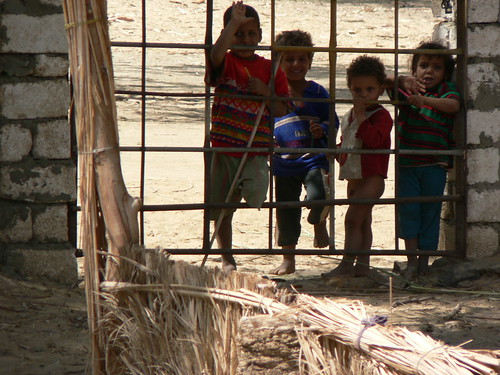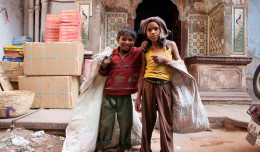 According to the World Economic Forum Global Competitiveness Report for 2013-2014, Egypt ranked last among all 148 countries surveyed in terms of primary education. This represents the deterioration that has occurred in Egypt’s education system over recent years.
According to the World Economic Forum Global Competitiveness Report for 2013-2014, Egypt ranked last among all 148 countries surveyed in terms of primary education. This represents the deterioration that has occurred in Egypt’s education system over recent years.
Multiple problems contribute to this situation, including insufficient funding for schools. Although Egypt’s population has continued to rise, the government has not increased funding to education. This has resulted in heavily overcrowded schools, often housing up to 60 children in one classroom. Schools also lack the funding to provide adequate supplies and teaching materials.
According to one parent in Cairo, “the children are not educated well in school and they just memorise things. It’s better in the private lessons where the teacher explains things well.”
Without sufficient funding, schools cannot pay their teachers enough to cover their basic expenses. Faced with insufficient salaries, many teachers pressure students into paying for private lessons as a way to supplement their incomes. This places wealthier students at a distinct advantage over their poorer classmates.
“I pay around 300 pounds for Mahmoud’s private lessons per month. Teachers often impose psychological pressure on students if they do not opt for private lessons, stigmatising them… Teachers do not tend to explain everything in classrooms, unlike during private lessons where they are able to word by word…It is much easier to understand the topic in private lessons where there are only several students, while classrooms are usually packed” explained Mohamed Farahat, a father of six children in Egyptian schools.
Even though children receive poor quality education, it is still expensive for parents. To improve their children’s chances of success, many parents pay significant amounts of money to provide private instruction. Schools also ask parents to contribute funds for repairs and resources needed by the school. Many parents struggle to cover these costs and may even need to take out loans or cut back on necessities like food.
Egypt’s education system has performed poorly for decades, resulting in a high illiteracy rate of 28%. According to statistics reported for 2012, illiteracy affects more than 16 million people over the age of 10 with 10.3 million of these being women.
Creative Commons Love: John Thomas on Flickr.com

















